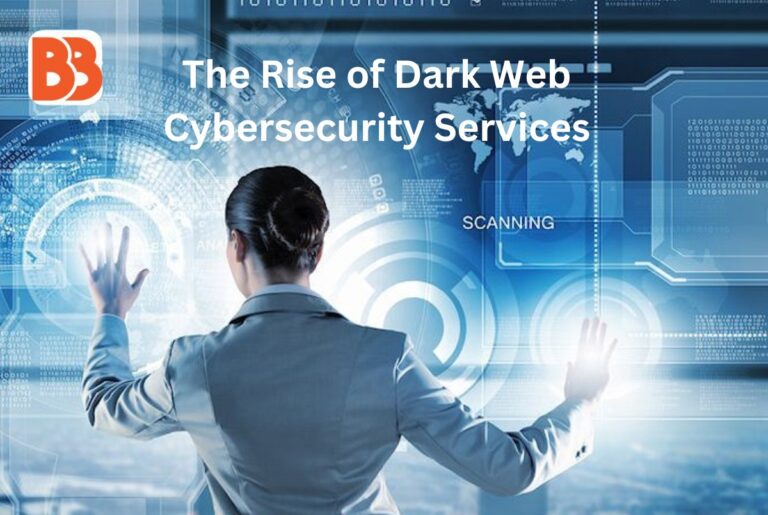The dark web has not only been a hub for illicit activities but has also given rise to a market for dark web cybersecurity services designed to protect users within its ecosystem. As governments and law enforcement tighten their surveillance, cybercriminals and regular users alike have turned to specialized dark web cybersecurity providers to safeguard their anonymity and operations.
This trend highlights an ironic development: those who operate in illegal or high-risk spaces are now purchasing security solutions, mimicking legitimate businesses in their efforts to avoid exposure to hacking, scams, and government tracking.
Why the Demand for Cybersecurity on the Dark Web?
While the dark web offers anonymity through tools like Tor and encryption, it is not entirely free from risks. Just as on the surface web, users on the dark web are vulnerable to:
- Malware: Malicious software can compromise anonymity or steal sensitive data.
- Hacks: Cybercriminals may target each other, resulting in theft or blackmail.
- Law Enforcement Sting Operations: Users fear being caught by undercover law enforcement agencies infiltrating dark web forums.
As these risks grow, there is an increasing demand for cybersecurity services specifically tailored to the dark web’s unique challenges. These services aim to protect users from other malicious actors and law enforcement agencies that are continually evolving their methods to track down illegal activities.
Types of Cybersecurity Services Offered on the Dark Web
Dark web cybersecurity services encompass various offerings similar to those on the surface web but with a more clandestine approach. Some of the primary services include:
Anonymity Protection Packages
These services offer users advanced VPNs and proxy chains that operate on top of Tor, adding extra layers of privacy and preventing IP tracking or monitoring.
Malware Detection and Removal
Cybercriminals often target each other with malware. Some service providers offer malware detection tools to prevent infections from rival groups or even regular users.
Encryption Services
Many dark web users purchase encryption tools or services to secure their communications and transactions. Advanced encryption methods prevent unauthorized access to personal or business-related data.
Secure Hosting
Dark web marketplaces, forums, and illegal businesses use secure hosting services to operate hidden websites (or onion sites). These services are designed to resist Distributed Denial of Service (DDoS) attacks and potential law enforcement seizures.
Consultancy Services
Some firms provide consultancy on the best practices for staying hidden online. This includes guidance on operational security (OpSec), advice on how to navigate specific risks, and updates on law enforcement methods.
Ethical Implications of Dark Web Cybersecurity
The rise of cybersecurity services on the dark web presents ethical dilemmas. While some users employ these tools for legitimate purposes—such as journalists or activists operating in oppressive regimes—the majority of demand stems from illegal enterprises, including drug traffickers, human traffickers, and cybercriminals.
The question of whether these services enable crime or protect personal privacy is a contentious one. Cybersecurity experts argue that while tools like encryption should remain available to protect individual rights, the way they are used on the dark web highlights a need for regulation.
Law Enforcement Response
As dark web cybersecurity services grow, law enforcement is also evolving its tactics to combat cybercrime. Agencies like the FBI and Europol have successfully taken down large dark web markets by infiltrating their systems and even hijacking their security services.
The challenge for law enforcement is twofold:
- Staying Ahead of Advanced Anonymity Tools: New encryption methods and sophisticated VPNs make it increasingly difficult to trace illegal activity.
- Ethical Boundaries: Authorities must balance their efforts to crack down on crime with respect for individual privacy rights, particularly when dealing with encryption tools.
The Future of Dark Web Cybersecurity
Looking ahead, the growth of cybersecurity services on the dark web will likely continue as cybercriminals innovate to evade law enforcement. With quantum computing on the horizon, encryption methods may need to be significantly upgraded to remain secure, both for legitimate and illicit users. At the same time, Artificial Intelligence (AI) could play a crucial role in either aiding law enforcement efforts or providing more advanced security solutions for dark web actors.
Moreover, the increasing commercialization of the dark web—through the offering of professional-grade cybersecurity services—raises important questions about the nature of cybercrime and the thin line between privacy and criminal facilitation.
Conclusion
The rise of dark web cybersecurity services represents a fascinating intersection between crime, privacy, and technology. As cybersecurity solutions evolve, both on the surface web and the dark web, the battle between privacy advocates, criminals, and law enforcement will continue to intensify. The outcome of this struggle will shape the future of internet anonymity and the tools used to protect it.
